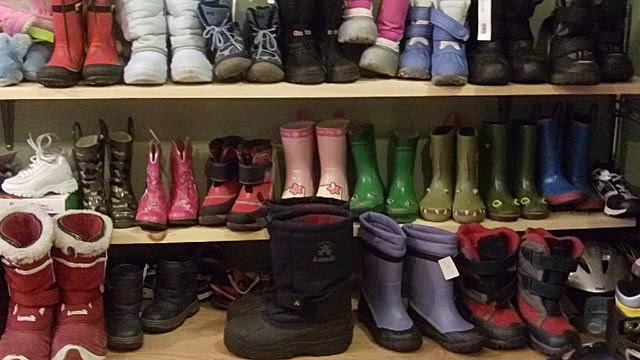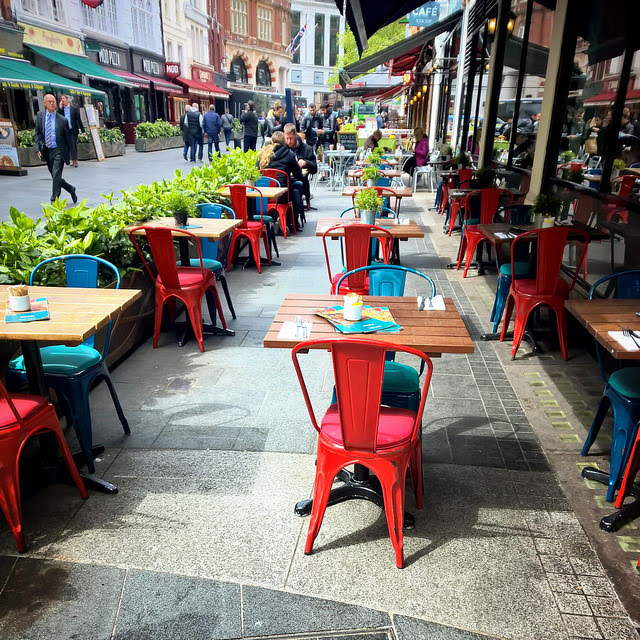6 Small Things That Can Improve Your Budget
There are a lot of gurus out there advertising total money makeovers and financial freedom through radical life change. There’s a place for that, but not everyone is ready for a total lifestyle change. Or, in some cases, not everyone needs a total lifestyle change. Sometimes just a few small things can start to add up, becoming the difference between being in debt and having a real savings account.
Below are six ways you can make your budget a little better.
1. Reduce the daily vices and treats.
It’s Monday. You’re off to work, and you’re not all that happy about it. So what do you do? You swing by Starbucks to get your favored espresso. Or you smoke a cigarette as you wade through morning traffic. Or you pick up that monster-sized Diet Coke on your way out of the gas station.
“No way am I giving that up,” you say. “Especially not on Monday.”
Fair enough. I’ll give you Monday. Sometimes I feel like I need a cigarette on Monday, and I don’t even smoke. What about some of the other days of the week?
Everyone knows that treats and vices add up, sometimes to the tune of hundreds of dollars a month. Plus, everyone knows that those vices are probably not good for you. (Even diet soda has its problems.) What if you could cut down your use by, say, a quarter or even half? What if, instead of smoking 5 cigarettes a day, you smoked 4 or 3? What if, instead of getting Starbucks every morning, you just did it three days a week, or two? (Or, better yet, what if you made your coffee at home rather than going out to get it?)
It may not sound like a lot of money, but it adds up. Passing on a $5 hot drink 3 days a week is $15 a week, or $780 a year, or $3,900 over a five-year period. Add interest into that mix, and you’re talking about having a bigger rainy-day fund, or a bigger vacation fund, or savings toward classes that can help you get a better job.
2. Re-evaluate your plans and subscriptions.
Companies love it when we have monthly subscriptions, especially because it makes it harder for consumers to fully realize the true cost of what they’re getting. Sure, that $50 cell phone plan seems affordable, but it’s also $600 a year. Same thing with that cable or satellite television plan.
“But I need a cell phone. And I’ve got to have something to watch after work.”
Sure. But there may be cheaper ways to do it.
Want good TV? Consider a couple of streaming services, paired with a good antenna. (Hint: antenna TV has come a LONG way.)
Want good cell phone service? Consider one of the non-contract companies like Republic Wireless, Red Pocket, or even Tracfone. Chances are that you’ll get better prices for your plan compared to the big providers, especially if you, like most people, use Wi-Fi a lot.
3. Make some of your money work for you.
If you have even a little extra money, it’s a no-brainer to try to find ways to make it grow. I mean, why not get paid to have your money sit somewhere? The good news is that there are lots of options out there, and they’re not too hard.
If you want to play it really safe, consider a savings account. Your local bank has one, of course, but the interest rates are probably really terrible. Instead, take a look at one of the many FDIC-insured online banks out there, which have interest rates that are probably higher than any savings, money market, or CD your bank offers.
If you’re feeling more adventuresome, you can invest in the stock market or a mutual fund, although you have to be more careful here because your money is not guaranteed. Index funds, like ones that track the stock market, are interesting because they include a lot of different stocks and often have very low fees.
Also, if you use credit cards and you don’t keep a balance, having a quality rewards card is worth a look. Discover is a longtime champ in the cash-back category, but many other banks also offer cash-back cards or rewards cards. (Cards for non-cash rewards are cool, but in my experience straight-up cash-back cards usually give you more back overall.)
4. Eat in.
Eating out is a lot of fun, but it’s also expensive. What most people may not realize is that, in this day and age, you can make a lot of restaurant-quality food at home with just a little bit of time and the right equipment, and almost always for a fraction of the cost.
Want a good burger? A decent grill and some quality beef from the grocer can do that.
Want restaurant quality French fries? Get a deep fryer and you’ll have it.
Want top-shelf pasta? Everything you need is in a large-inventory grocery store.
“But I don’t have time,” you might say.
I get it. Sometimes we’re crazy busy. So if you eat out three times a week, try to reduce it to two. See if there are creative ways to avoid one of those times out. Trust me, your pocketbook will eventually thank you.
Bonus: buy your groceries at a wholesale club or at a low-inventory store, like Aldi, where you can get some awfully good food for awfully low prices.
5. Stretch out the life of what you’ve got.
Companies want us to buy new things because that’s how they make money. That’s why they flood us with commercials for new cars, new phones, and new everything else, luring us in with installment plans and add-ons to regular bills that try to hide how much we’re really paying.
Sometimes you really do need something new … but is today that day? Remember that each day you stretch out what you’ve got is money you’re not paying out. Plus, the longer you wait, the longer you can hold out for just the right deal. This is especially true of technology, which is constantly getting upgrades. If you wait long enough, you’ll probably be able to get better features for the same price as you might have gotten for something lesser early on.
6. Downsize.
Okay, this one isn’t necessarily small, which is why it’s best to save it for last. A lot of Americans have homes that are bigger than they’ll ever need, or they are renting storage for stuff they almost never use. It’s nice to have a lot of space, but ask yourself: do you really need all of it all the time? Many people only need a lot of space during special events. With all the money you would save on your mortgage or insurance or utility bills or storage costs, you could easily rent a nice venue (through a local place or even through Airbnb) for special events.
Any other tips for cutting the budget? What’s worked for you?







